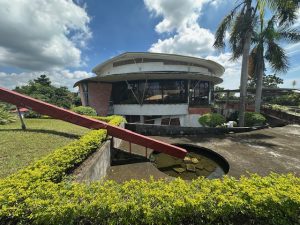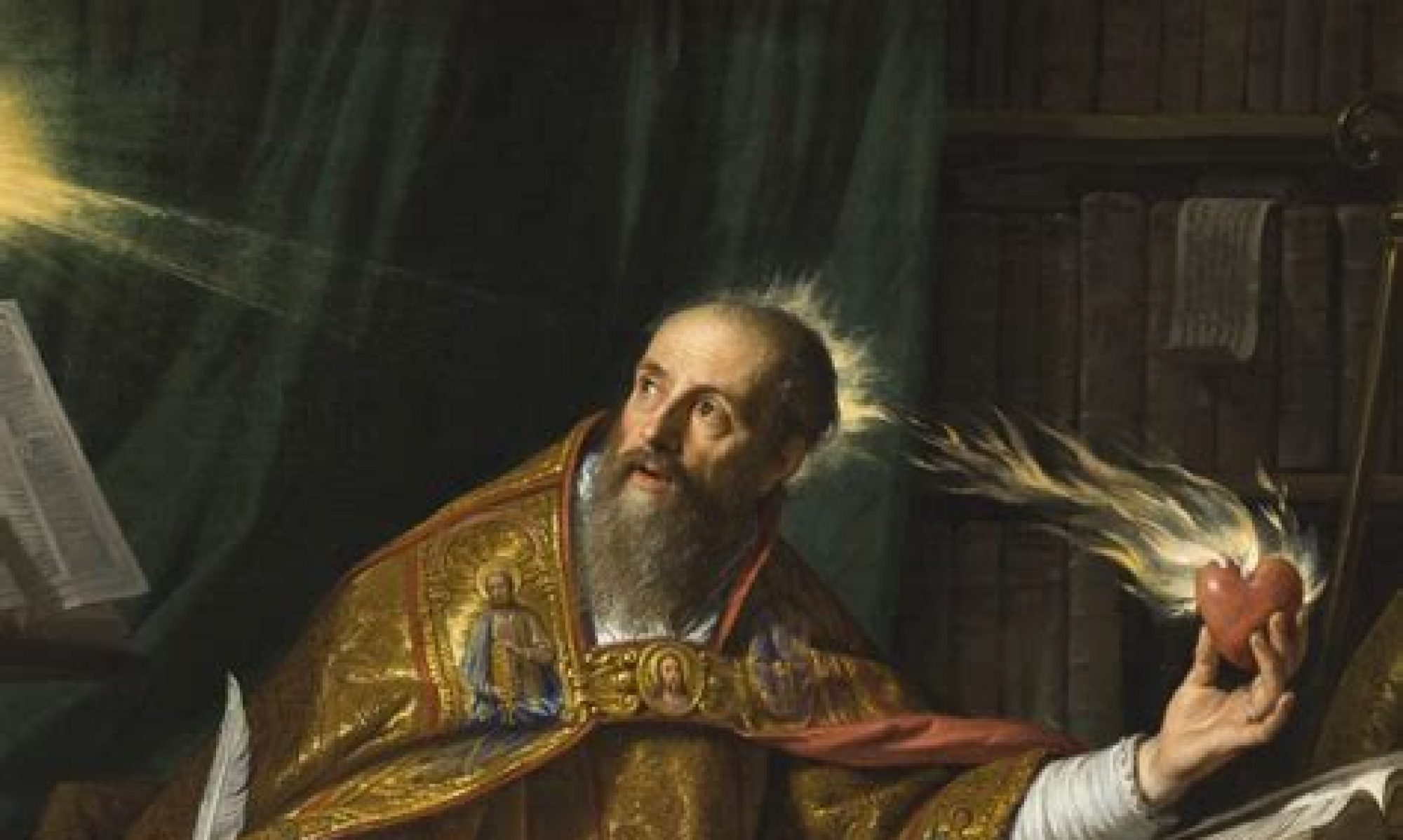Many times, we forget the essential matters of life while living in the moment. That is a human tendency—forgetting the need to remain vigilant and watchful.
Spending a week here at the Santo Niño Spirituality Center in Consolacion, Cebu, with four Augustinian priests and a brother has truly been a blessing. I have been gifted with the luxury of time to reflect and meditate on the Word of God as I prepare this Sunday’s Dictate of the Heart Gospel reflection. This is my ongoing commitment to the ministry of evangelization. It is also a moment for personal retrospection, time for my heart to reflect on my religious vocation and how I can become a more effective evangelizer and faithful servant. I deeply cherish these moments of watchfulness and focus on eternal matters.
The first reading from the Book of Wisdom tells the story of the Hebrew people awaiting the salvation of the just. It was part of their religious tradition to remain hopeful, with God’s promise of liberation deeply carved into their hearts a promise for the righteous, chosen to be His own. Like the Hebrew people, we often wander through our own life journeys, especially during our “desert” experiences. Yet God continuously gives us signs to remind us of His promise of deliverance.
The second reading from the Letter to the Hebrews looks forward to the fulfillment of the promise—the attainment of the City of God, designed and built by God: “Abraham was looking forward to the city with foundations, whose architect and maker is God” (v.10).
St. Augustine, in his work The City of God, written around 413 AD, offered a logical and spiritual response to the fall of the Roman Empire. He argued that the blame for suffering—wars, plagues, and other calamities should not be placed on Christians. Bad things happen to all, but there is a God who remains in control. Augustine’s aim was to help us understand the possibility of attaining the path to perfection and happiness. Through his life dedicated to God, his restless heart found fulfillment in the inner desire for the City of God.
In the Gospel from Luke 12:32–48, Jesus exhorts His followers to always be prepared, “for at an hour you do not expect, the Son of Man will come.”
Jesus’ instructions on readiness for the coming judgment are central to today’s Gospel.
We are called to prepare rather than be consumed by the affairs of this world. Just as we heard in last Sunday’s Gospel about the man who stored up worldly riches but failed to understand how brief life is because he did not share, so too are we called not to hoard but to share with those in need.
Fear and anxiety often arise at the thought of judgment. But to overcome fear, we must be magnanimous and generous. True treasure is not found here on earth, but in heaven, where it cannot wear out or be destroyed. Therefore, we must not become too attached to earthly possessions, but instead be ready to let go in order to serve others. We are called to be faithful stewards of the many blessings God has given us.
In this Gospel from St. Luke, the parable of the watchful servants reminds us to be like those waiting for their master’s return from a wedding banquet ready at any hour, day or night. Readiness requires both vigilance and active preparation. This is what the coming of the Son of Man will be like.
Peter asks whether the parable is meant for the apostles or for the larger crowd listening to Jesus. Jesus does not answer directly. The answer lies within the parable itself. It is meant for all of us. Those who wait in patience and faithfulness will be rewarded at the heavenly banquet after the final judgment.
The parable teaches that we must be found faithfully doing our duties when the Master arrives. If we are doing our work, our reward will be great. But if we relax, neglect our responsibilities, and live only for eating, drinking, and pleasure, we risk losing our place in the Kingdom.
The right attitude of watchfulness and vigilance means living a morally consistent and obedient life—always ready to give an account to God of how we have lived.
May our eager watchfulness remind us that true readiness for God’s plan begins by patterning our hearts after Jesus, leading us clearly toward where we all belong—the City of God.
God bless you.
Fr. Arlon, osa
——–
Dictado del Corazón
Decimonoveno Domingo del Tiempo Ordinario, Año C
- Sabiduría 18, 6–9
- Salmo 32, 1.12.18–22
- Hebreos 11, 1–2.8–19
- Lucas 12, 32–48
Muchas veces olvidamos lo esencial de la vida mientras vivimos el momento presente. Es una tendencia humana olvidar la necesidad de permanecer vigilantes y atentos.
Pasar una semana aquí en el Centro de Espiritualidad del Santo Niño, en Consolación, Cebú, acompañado de cuatro sacerdotes agustinos y un hermano, ha sido verdaderamente una bendición. He recibido el regalo del tiempo: tiempo para reflexionar y meditar en la Palabra de Dios mientras preparo esta reflexión del Evangelio para el Dictado del Corazón de este domingo. Es parte de mi compromiso constante con el ministerio de la evangelización. También ha sido un momento de introspección personal, un tiempo para que mi corazón medite sobre mi vocación religiosa y sobre cómo puedo ser un evangelizador más eficaz. Atesoro profundamente estos momentos de vigilancia interior y de enfoque en los asuntos eternos.
La primera lectura, del Libro de la Sabiduría, relata cómo el pueblo hebreo esperaba la salvación de los justos. Era parte de su tradición religiosa mantener viva la esperanza, con la promesa de liberación de Dios grabada profundamente en sus corazones; una promesa para los justos, elegidos por Él como su pueblo. Al igual que el pueblo hebreo, muchas veces nosotros también deambulamos en nuestro propio camino de vida, especialmente durante nuestras experiencias en el “desierto”. Sin embargo, Dios constantemente nos da señales para recordarnos su promesa de liberación.
La segunda lectura, de la Carta a los Hebreos, mira hacia el cumplimiento de esa promesa: la llegada de la Ciudad de Dios, diseñada y construida por el mismo Dios:
“Abrahán esperaba la ciudad de sólidos cimientos, cuyo arquitecto y constructor es Dios” (v.10).
San Agustín, en su obra La Ciudad de Dios, escrita alrededor del año 413 d.C., ofreció una respuesta lógica y espiritual ante la caída del Imperio Romano. Argumentaba que no se debía culpar a los cristianos por los sufrimientos, guerras, plagas y otras calamidades, ya que el mal afecta a todos por igual. Pero hay un Dios que permanece en control. El objetivo de Agustín era ayudarnos a comprender que sí es posible alcanzar el camino hacia la perfección y la verdadera felicidad. A través de una vida dedicada a Dios, su corazón inquieto encontró plenitud en ese deseo profundo por la Ciudad de Dios.
En el Evangelio según San Lucas 12, 32–48, Jesús exhorta a sus seguidores a estar siempre preparados:
“Porque a la hora que menos lo piensen, vendrá el Hijo del Hombre.”
Las instrucciones de Jesús sobre estar listos para el juicio final son el centro del Evangelio de hoy.
Estamos llamados a prepararnos, en lugar de dejarnos consumir por los asuntos del mundo. Así como escuchamos en el Evangelio del domingo pasado acerca del hombre que acumuló riquezas materiales sin comprender lo breve que es la vida porque no compartió, también nosotros somos llamados a no acaparar, sino a compartir con quienes lo necesitan.
El temor y la ansiedad suelen surgir al pensar en el juicio. Pero para vencer ese miedo, debemos ser magnánimos y generosos. El verdadero tesoro no se encuentra aquí en la tierra, sino en el cielo, donde no se desgasta ni puede ser destruido. Por ello, no debemos apegarnos demasiado a los bienes terrenales, sino estar siempre dispuestos a desprendernos de ellos para servir a los demás. Estamos llamados a ser administradores fieles de las muchas bendiciones que Dios nos ha dado.
En este Evangelio de San Lucas, la parábola de los siervos vigilantes nos recuerda que debemos ser como aquellos que esperan el regreso de su señor después de una boda, listos en cualquier momento, de día o de noche. La preparación requiere tanto vigilancia como acción concreta. Así será la venida del Hijo del Hombre.
Pedro pregunta si la parábola es solo para los apóstoles o también para la multitud que escuchaba a Jesús. Jesús no responde directamente. La respuesta está contenida en la misma parábola: es para todos aquellos que esperan con paciencia y fidelidad. Ellos serán recompensados en el banquete celestial después del juicio final.
La parábola enseña que debemos ser encontrados cumpliendo fielmente con nuestro deber cuando llegue el Señor. Si estamos trabajando con responsabilidad, nuestra recompensa será grande. Pero si nos relajamos, descuidamos nuestras responsabilidades y vivimos solo para comer, beber y disfrutar, corremos el riesgo de perder nuestro lugar en el Reino.
La actitud correcta de vigilancia implica vivir una vida moralmente coherente y obediente, siempre listos para dar cuentas a Dios de cómo hemos vivido.
Que nuestra vigilancia constante nos recuerde que la verdadera preparación para el plan de Dios comienza cuando modelamos nuestro corazón según el de Jesús, y así avanzamos claramente hacia nuestro destino final: la Ciudad de Dios.
Dios los bendiga.
P. Arlon, OSA



